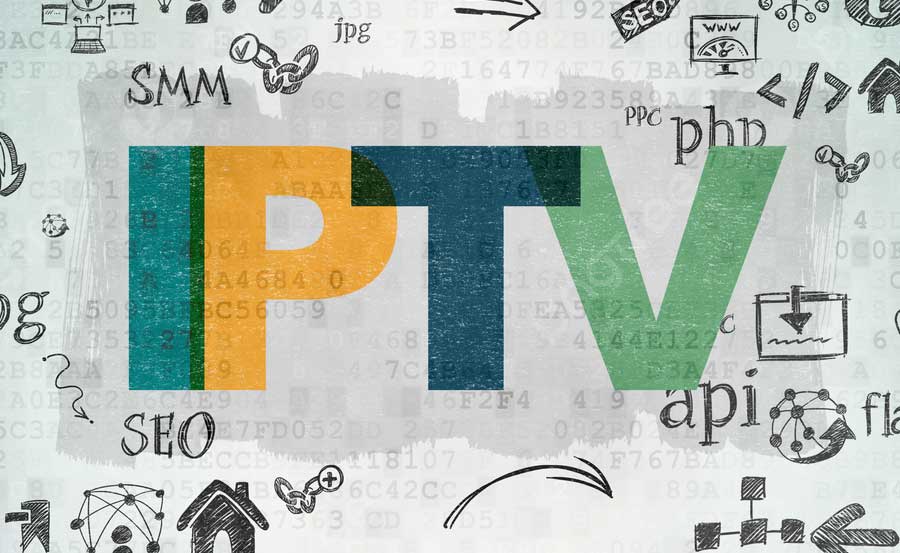Understanding IPTV: The Future of Television
IPTV, or Internet Protocol Television, is rapidly emerging as a cost-effective, revolutionary technology that is gradually replacing traditional satellite and cable IPTV services. By using the internet to deliver television programming, IPTV offers users more flexibility and a seamless streaming experience, which sets it apart from older methods of TV delivery. Rather than relying on a satellite dish or cable infrastructure, IPTV transmits channels and media through the Internet Protocol (IP), enabling viewers to access content from anywhere in the world—wherever there’s an internet connection.
This technology is becoming the preferred choice for millions of people across the globe due to the numerous benefits it offers, particularly when paired with other internet-based services. IPTV isn’t just about watching live TV; it’s about the whole experience—interactivity, on-demand options, and cost-saving features—all bundled into one powerful package.
Setting Up IPTV on Your MAG Box: A Simple Step-by-Step Process
Key Benefits of IPTV
1. Interactivity & User Control
One of the most significant advantages of IPTV is its interactivity. With IPTV, users have the ability to search for their favorite programs in ways traditional TV can’t offer. Whether it’s by title, genre, actor, or even specific sports events, IPTV provides a level of control that allows users to tailor their viewing experience. This functionality ensures that viewers no longer have to scroll through channels aimlessly—they can go straight to the content they want to watch. The interactivity also extends to the ability to pause, rewind, or fast-forward through live programs, similar to using a DVR, which enhances the overall viewing experience.
Additionally, IPTV content can be accessed on virtually any internet-connected device. Whether you’re using a Smart TV, laptop, tablet, or smartphone, you can stream your favorite shows from anywhere, anytime. This flexibility makes IPTV far more versatile than satellite or cable, which are typically tied to specific hardware setups.
2. Video on Demand (VOD)
A standout feature of IPTV is its Video on Demand (VOD) service. With VOD, users can rent or stream a vast library of movies, TV series, documentaries, and more—directly from their IPTV provider. What makes VOD special is the control it offers: users can pause, rewind, and fast-forward their content at will, allowing them to watch at their own pace. This on-demand approach eliminates the need to plan around TV schedules or wait for specific broadcast times.
For movie enthusiasts or binge-watchers, VOD is a game-changer. With IPTV, you essentially have a personal library of content at your fingertips, comparable to popular streaming platforms, but with the added benefit of integration with live IPTV channels.
3. Multi-Device Support & Cross-Platform Availability
One of the driving forces behind IPTV’s growing popularity is its compatibility with a wide range of devices. Whether you’re at home, traveling, or simply on the go, you can stream IPTV content across multiple platforms. IPTV works seamlessly on smartphones, tablets, smart TVs, desktop computers, laptops, and even game consoles.
This cross-platform availability means you can start watching a program on your TV at home, pause it, and then resume it later on your smartphone while commuting. IPTV ensures that your content follows you wherever you go, offering uninterrupted viewing.
4. Cost-Effectiveness & Service Bundling
IPTV isn’t just about convenience—it’s also cost-effective. Many traditional TV services require users to subscribe to separate satellite or cable packages, often with high monthly fees. With IPTV, you can bundle services such as internet, television, and even home phone into a single package, reducing overall costs.
Moreover, IPTV eliminates the need for bulky hardware, installation fees, or specialized equipment like satellite dishes, making it a more streamlined and affordable solution for consumers.
In some cases, IPTV services even allow customers to choose the channels they want, so you’re not paying for packages filled with channels you’ll never watch. Instead, users can customize their subscriptions to fit their viewing preferences, further saving money.
Why IPTV is Shaping the Future of TV
As the world shifts toward more internet-driven solutions, IPTV is positioned to lead the way in transforming how we consume media. It’s not just the fact that IPTV can deliver live TV content efficiently—it’s the combination of interactivity, flexibility, and on-demand services that sets it apart.
Unlike satellite and cable TV, which are often limited by geography and hardware, IPTV only requires an internet connection. This makes it accessible to a global audience, offering everyone—from casual viewers to die-hard sports fans—the chance to enjoy television their way. And as internet speeds continue to improve worldwide, IPTV’s streaming capabilities will only get stronger, delivering higher-quality content, including HD and 4K streams, with minimal buffering.
The Future is Here
For those looking to break away from the constraints of traditional television services, IPTV presents a compelling alternative. Whether you’re looking for more flexibility, control over your viewing experience, or simply a more economical solution, IPTV is designed to meet the needs of the modern viewer.
As technology continues to evolve, so too will IPTV’s capabilities. We can expect to see even greater integration with smart home technology, voice assistants, and enhanced AI-driven recommendations that personalize your viewing experience even further.
The future of television is no longer tied to a satellite dish or a cable box—it’s here, and it’s powered by the internet.
Understanding M3U Lists: The Key to IPTV Channel Streaming

